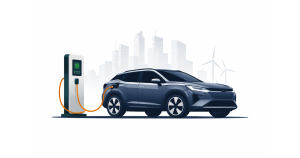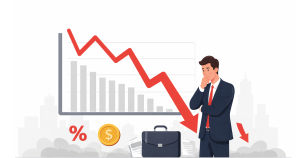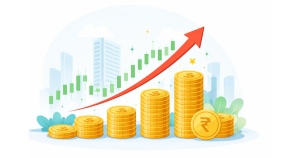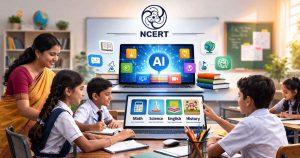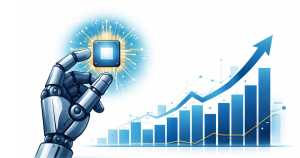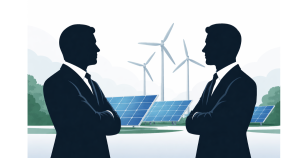Geoffrey Hinton, a pioneer of artificial intelligence, shares new concerns about AI’s future and calls for urgent global action. Discover the implications of his latest statements.
AI Pioneer Geoffrey Hinton Raises New Red Flags: Urges Humanity to Rethink AI’s Future
Geoffrey Hinton, often hailed as the “Godfather of AI,” has once again made headlines with his latest cautionary statements on the future of artificial intelligence. A man whose research laid the very foundations for modern AI systems, Hinton recently voiced deeper concerns about the rapid pace of AI development, its ethical risks, and the lack of robust governance around it. At a time when AI is weaving itself into every aspect of our lives — from education and healthcare to warfare and creative industries — Hinton’s words arrive not as speculation, but as a serious call to action.
Who Is Geoffrey Hinton?
Geoffrey Hinton is a British-Canadian cognitive psychologist and computer scientist whose work on neural networks revolutionized the field of AI. Along with Yoshua Bengio and Yann LeCun, he received the Turing Award in 2018 — the “Nobel Prize of Computing” — for their breakthroughs in deep learning. After years at Google, Hinton left his position in 2023 to speak more freely about the potential dangers AI poses to society.
His legacy is immense: most current large language models, vision algorithms, and recommendation engines trace back to concepts he helped formalize. And now, having witnessed AI’s accelerated evolution, Hinton is using his authority to advocate for urgent safeguards.
What Did Hinton Say Recently?
In his most recent appearance at the AI Policy Summit and a subsequent interview, Hinton reiterated his concern that AI systems could soon surpass human intelligence — and not necessarily with human-friendly goals. He warned of the possibility that powerful AI systems could be used for mass surveillance, automated warfare, and manipulation at scale.
He also criticized current regulations as insufficient and called for international cooperation on a scale comparable to climate change efforts. “We’re creating entities more intelligent than us without knowing how to control them,” he said. “It’s like giving a toddler a box of grenades.”
Implications for Education and Society
From an educational standpoint, Hinton’s message resonates deeply. As AI becomes more integrated into classrooms — from chatbots aiding students to automated grading systems — there is a growing need to understand not only how these tools work but also their potential consequences.
He emphasized the importance of updating school and university curricula to include AI ethics, algorithmic bias, and responsible development. “We’re training the next generation of engineers and scientists,” he said, “but we also need to train them to be stewards of a powerful, double-edged tool.”
A Wake-Up Call for Policymakers
Hinton’s message is especially pressing for governments and international bodies. Despite increasing calls for AI regulation, global consensus remains fragmented. Some countries push aggressive AI development, while others lack the resources or expertise to implement safeguards. Hinton urges the formation of a global AI oversight body — akin to the International Atomic Energy Agency — to coordinate efforts.
“AI isn’t just another tech cycle,” Hinton explained. “It’s potentially the last invention humanity will need to make. After that, we might not be the ones in control.”
Human Touch in a Machine-Driven World
While Hinton’s warnings are sobering, they’re also deeply human. His concern isn’t about halting progress but ensuring that progress serves humanity. He pointed out how current AI systems, trained on biased datasets and optimized for profit, could exacerbate inequality, fuel misinformation, and deepen social divides.
What’s needed, according to Hinton, is a renaissance of human values in technology — empathy, transparency, and cooperation. It’s a reminder that technology doesn’t evolve in a vacuum; it mirrors the intentions of those who build it.
The Bigger Picture
Geoffrey Hinton’s latest remarks are not just another academic’s critique. They’re a profound appeal from a man who helped build the very technology now at a crossroads. His concerns underscore the need for informed debate, global cooperation, and, most importantly, accountability.
We cannot afford to treat artificial intelligence as just another innovation. It is a transformative force with the potential to redefine what it means to be human. And if the Godfather of AI is sounding the alarm, the world would do well to listen — before the technology we’ve created starts writing its own rules.
As we navigate this AI-driven future, perhaps the most human response is to pause, reflect, and act with wisdom — before intelligence, artificial or otherwise, outpaces our ability to manage it.
Also read: Sitaare Zameen Par: A Heartfelt Tale Returns with a New Perspective
Last Updated on: Tuesday, June 17, 2025 6:24 pm by Aaron T | Published by: Aaron T on Tuesday, June 17, 2025 6:24 pm | News Categories: News, Technology


